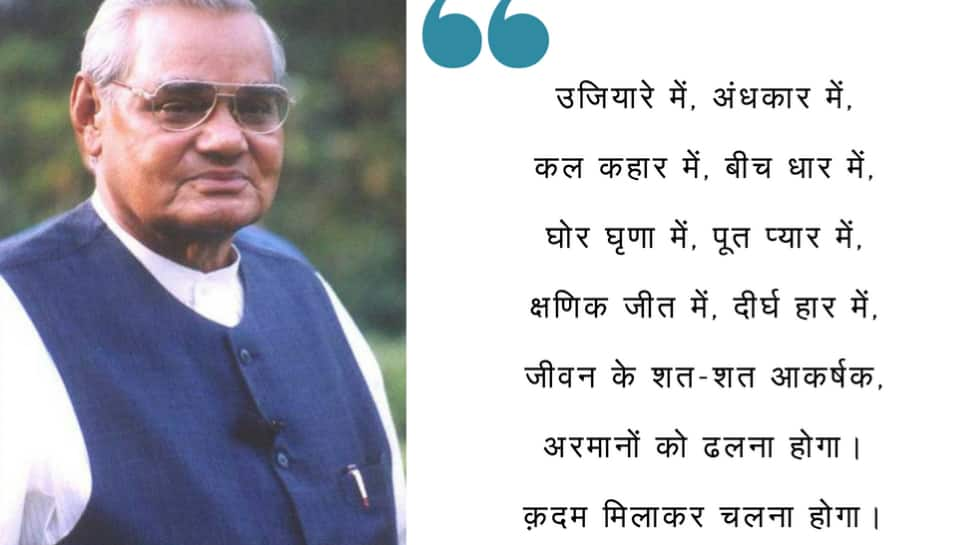New Delhi: Atal Bihari Vajpayee, born on December 25, 1924, in Gwalior, India, emerged as one of India’s most revered political leaders. Hailing from a humble Brahmin family, his father was a schoolteacher. Vajpayee’s early life was marked by a commitment to education and a passion for poetry, setting the stage for his later intellectual and political pursuits.
Early Life And Education:
Vajpayee’s academic brilliance led him to DAV College, Kanpur, where he delved into the realms of journalism and participated in the Quit India Movement in 1942. His involvement in the Rashtriya Swayamsevak Sangh (RSS) marked the beginning of his political journey.
Rising Through The Political Ranks:
Joining the Bharatiya Jana Sangh in 1951, Vajpayee quickly rose through the ranks. His eloquence and statesmanship earned him recognition, and he became the party’s national president in 1968. Despite facing challenges, he remained steadfast in promoting the party’s ideology.
Championing Democracy And National Unity:
Vajpayee’s commitment to democratic values was evident during the 1975 Emergency, where he played a crucial role in the fight against authoritarianism. His efforts to unite diverse political factions under the Janata Party resulted in the formation of the first non-Congress government in 1977.
Stewardship As Prime Minister:
Vajpayee’s leadership reached its pinnacle when he assumed the role of Prime Minister thrice: briefly in 1996, for a short-lived 13-day term, and then for two full terms from 1998 to 2004. His tenure witnessed remarkable economic reforms, nuclear tests in Pokhran, and a focus on infrastructure development.
Nuclear Tests And Foreign Policy:
In 1998, Vajpayee’s bold decision to conduct nuclear tests solidified India’s position on the global stage. His diplomatic prowess fostered amicable relations with major powers while maintaining India’s strategic autonomy.
Economic Reforms And Infrastructure Development:
Vajpayee’s government implemented sweeping economic reforms, fostering liberalization and privatization. The National Highways Development Project (Golden Quadrilateral) was a testament to his commitment to infrastructure development, connecting major cities and boosting economic growth.
Legacy And Later Years:
Atal Bihari Vajpayee’s legacy endures as a statesman who transcended party lines and prioritized national interests. His oratory skills, poetry, and inclusive governance left an indelible mark on Indian politics. Despite declining health, he remained a guiding force until his demise on August 16, 2018.
In commemorating Atal Bihari Vajpayee’s life, India pays homage to a leader who not only shaped the nation’s destiny but also left behind a rich legacy of statesmanship and democratic values.

